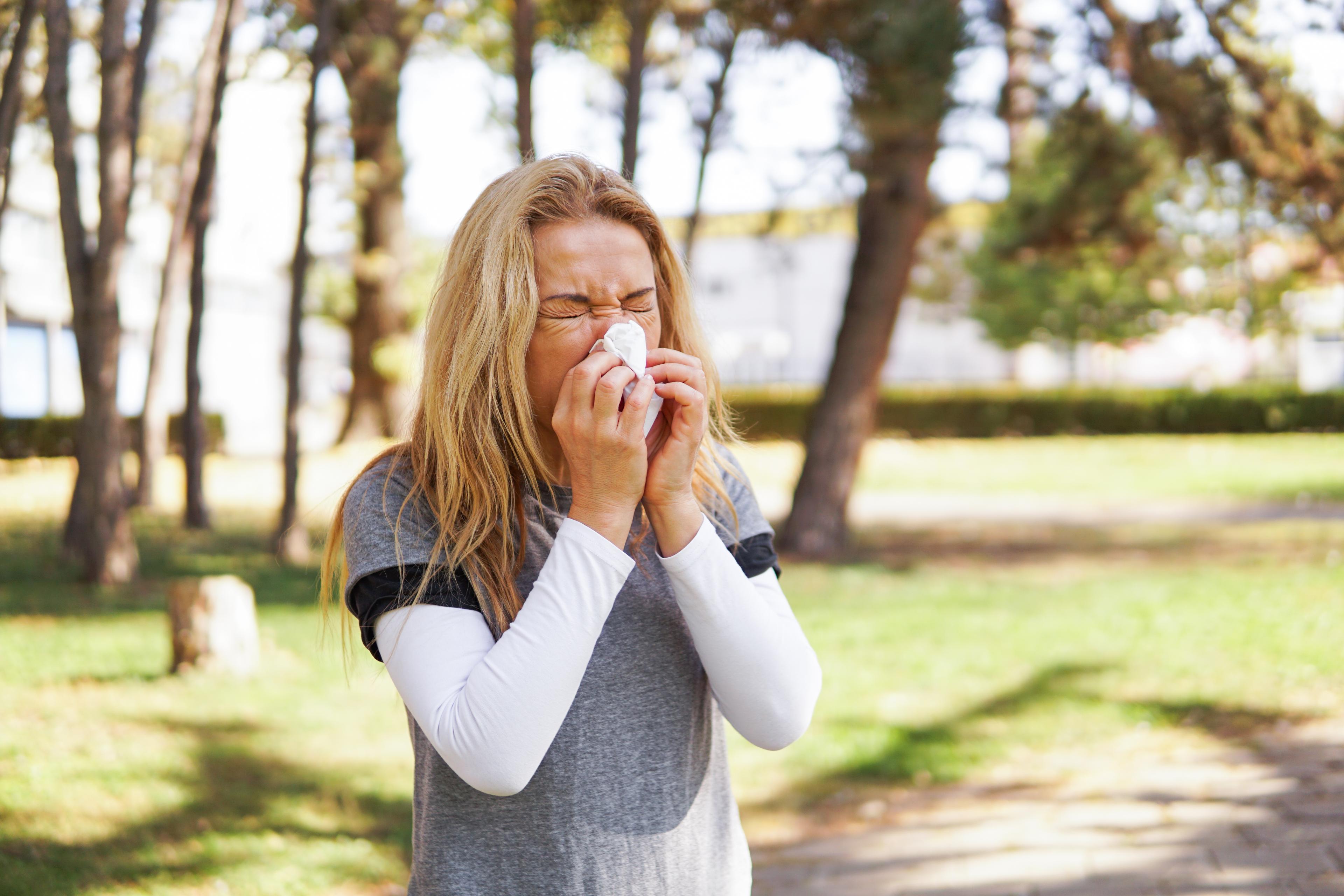How to Prepare for Allergy Season

Blue Daily
| 3 min read

Springtime is lovely but with it comes allergens and triggers for seasonal allergies. Increased pollen counts, rainfall, and wind patterns all contribute to “allergy season.” Learn how to better prepare yourself for allergy season, how to avoid common allergy triggers, and how to keep your home safer from allergens.
To prevent allergy season getting the better of you, it’s important to understand the allergens that trigger seasonal allergic symptoms such as sneezing, runny nose, congestion, headaches, irritated eyes, and other common symptoms.
1. Learn your allergens and local pollens
Most commonly, seasonal allergies cause hay fever and allergic rhinitis, according to the Mayo Clinic. It is important to know what your allergic triggers are and what you are allergic to.
During spring in Michigan the most common allergens include:
- evergreen, maple, ash and birch trees
- grass clippings and grass pollen
- ragweed
2. Be aware of weather, pollen count and air quality
There are tools online to find your local air quality and pollen counts, and many weather apps and news stations report on these daily as well. On especially high-allergen days, or days with low air quality, limiting your exposure to the air outside can help to avoid an allergic reaction, although this isn’t always realistic.
3. Keep your home and indoor spaces clean and allergen-free
It is also important to keep your living spaces allergen-free and clean to avoid making your allergies worse even while inside. Some ways allergens enter the home that can be avoided are through opened windows and wearing outdoor clothes and shoes inside and on furniture.
It’s also important to make sure any house plants you have aren’t allergens, and that you aren’t allergic to pets or pet dander if you have them. If you are allergic to grass pollen, wearing a mask outside when mowing or doing lawn work is a must.
According to the American College of Asthma, Allergy and Immunology, here are some more ways you can prepare your home to avoid or reduce springtime allergens:
- filter your air and use air conditioning rather than open windows
- avoid drying laundry outside
- change your clothes after spending time outside
- shower before bed
- change your sheets and pillowcases often
- dust and vacuum or sweep regularly
- use hypoallergenic laundry detergents and softeners
- stop smoking or vaping
4. Find the right seasonal allergy treatment
Avoiding every allergen is not possible and can be especially difficult in the spring or any allergy season. There are many common over-the-counter (OTC) treatments for seasonal allergies, but your care team might determine that your allergies or symptoms need more advanced care.
OTC medications
Some of the most common OTC remedies or meds for seasonal allergies include:
- antihistamines
- decongestants
- nasal sprays
These are often quite effective for seasonal allergies and can help to relieve symptoms, if not address the allergens directly. If your symptoms do not respond to OTC remedies or get worse, make sure to check with your care team to see if anything more than over the counter medications might be needed. In this situation an allergy test or referral to a specialist may be ordered.
Related Links:
- Ways to Reduce Allergens at Home (ahealthiermichigan.org)
- Finding Relief: Who to Talk to When Allergies Strike (ahealthiermichigan.org)
- How To Combat Allergies (ahealthiermichigan.org)
Photo credit: Getty Images





